What is cashew fruit? Nutritional composition of cashew fruit
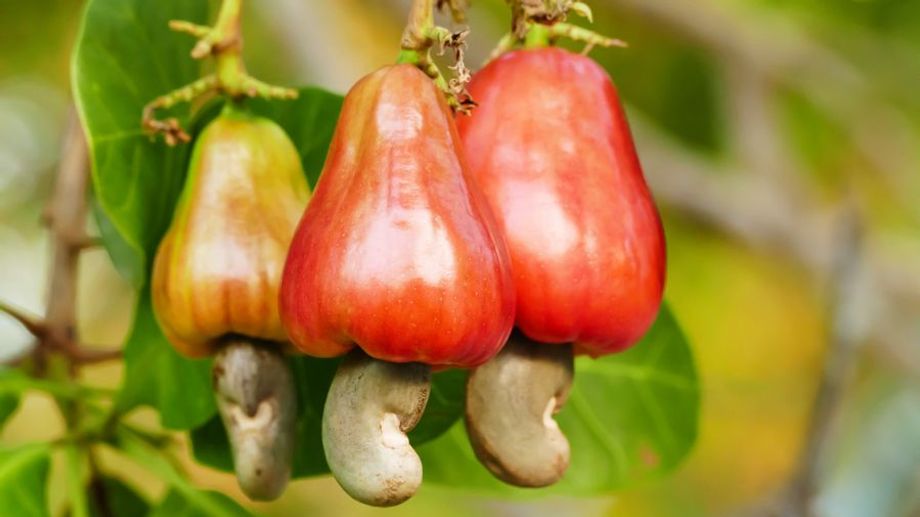
Mục lục
Cashew is a fruit with a hard shell and a heart-shaped shape. It is known as "inverted cashew" because the seed inside is turned inside out. Cashew is native to African and Indian countries and is now widely grown and produced around the world. It is not only a delicious and nutritious fruit, but also has many uses and health benefits. Let's learn about "What is cashew? Discover the uses of upside-down cashew" in this article!
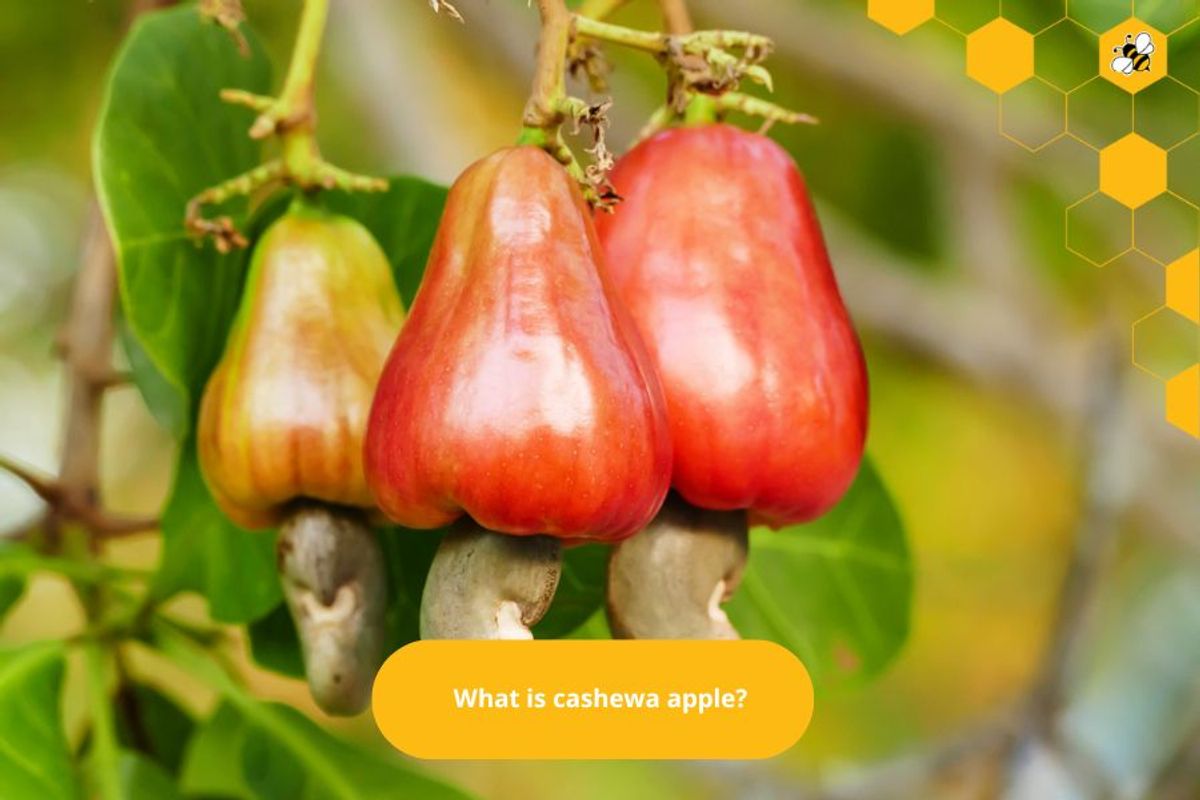
What is cashew apple?
Cashew apple (also known as peach) is a fruit with a hard shell and a heart-shaped shape. Known as an "upside-down cashew" because the seed inside is turned inside out. Cashews originated from African and Indian countries and are now widely grown and produced around the world.
Uses of cashews:
Eating cashews is a diuretic: Cashews are usually soft and juicy and are often reddish-yellow or purple. Containing 10% sugar and high levels of vitamin C, cashew has the effect of stimulating digestion and diuresis.
Killing Anopheles mosquitoes: In scientific research, cashews have been used to kill Anopheles mosquitoes that cause malaria by spreading the juicy soft part of the cashew around water reservoirs.
Uses of cashews:
Eating cashews is a diuretic: Cashews are usually soft and juicy and are often reddish-yellow or purple. Containing 10% sugar and high levels of vitamin C, cashew has the effect of stimulating digestion and diuresis.
Killing Anopheles mosquitoes: In scientific research, cashews have been used to kill Anopheles mosquitoes that cause malaria by spreading the juicy soft part of the cashew around water reservoirs.
In addition, cashews can be sliced or sliced depending on your preference. You can eat them directly dip them in salt and pepper, or combine them with other vegetables. When eating cashews, avoid letting the juice of the fruit fall on your clothes, because if it falls on your clothes, it will be difficult to wash.
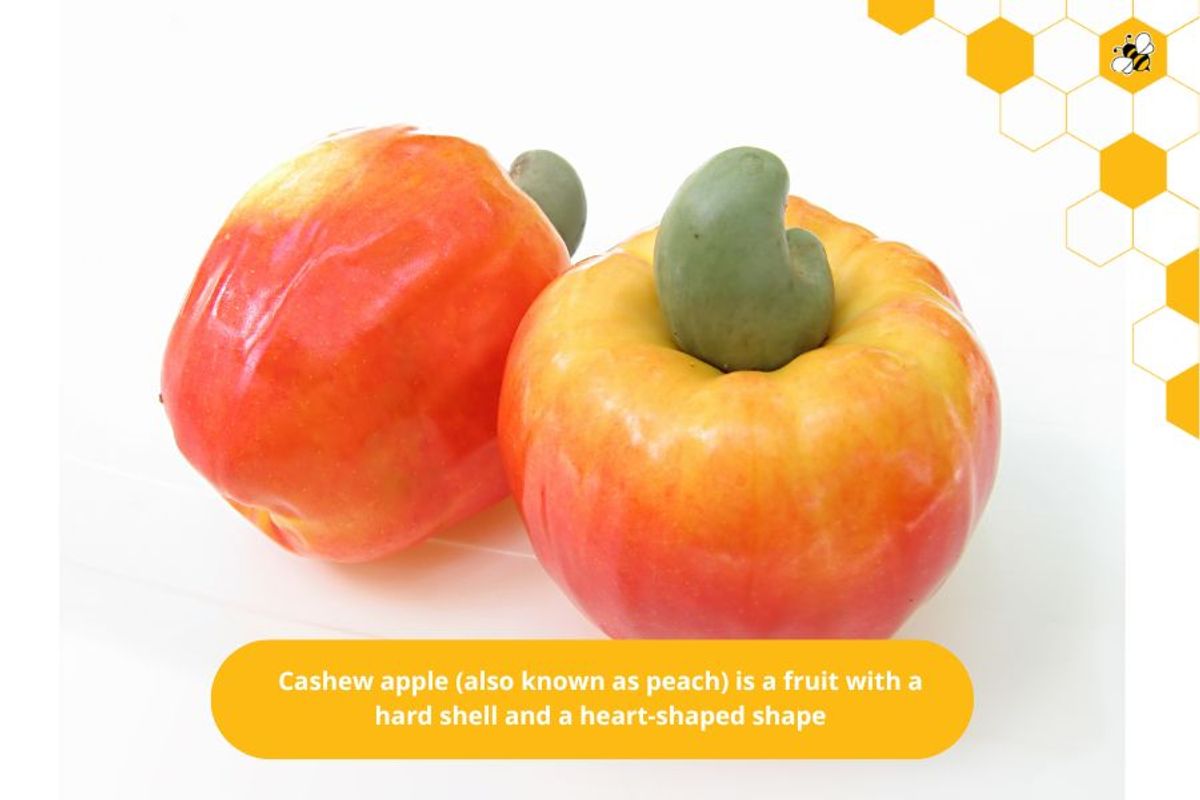
Nutritional composition of cashews
Cashews (also known as cashews) are easily digestible food, sweet and fragrant, rich in minerals and vitamins. Below is the nutritional composition of cashews:
Energy: In 100 grams of cashews, there are about 605 Kcal.
Protein: Cashews contain about 18.4 grams of protein.
Glucid: There are about 28.7 grams of glucid in cashews.
Lipid: Cashews provide about 46.3 grams of lipids.
Fiber: Contains 0.6 grams of fiber.
Vitamins: Cashews contain many vitamins, including:
Vitamin E: About 0.9 mg.
Vitamin K: About 34.1 mg.
Vitamin B6: About 0.417 mg.
Minerals: Cashews provide important minerals:
Calcium: About 28 mg.
Sodium: About 12 mg.
Potassium: About 660 mg.
Magnesium: About 292 mg.
Folate: About 25 mcg.
Energy: In 100 grams of cashews, there are about 605 Kcal.
Protein: Cashews contain about 18.4 grams of protein.
Glucid: There are about 28.7 grams of glucid in cashews.
Lipid: Cashews provide about 46.3 grams of lipids.
Fiber: Contains 0.6 grams of fiber.
Vitamins: Cashews contain many vitamins, including:
Vitamin E: About 0.9 mg.
Vitamin K: About 34.1 mg.
Vitamin B6: About 0.417 mg.
Minerals: Cashews provide important minerals:
Calcium: About 28 mg.
Sodium: About 12 mg.
Potassium: About 660 mg.
Magnesium: About 292 mg.
Folate: About 25 mcg.
Cashews are not only delicious but also good for your health. Enjoy cashews regularly to benefit from these nutrients!
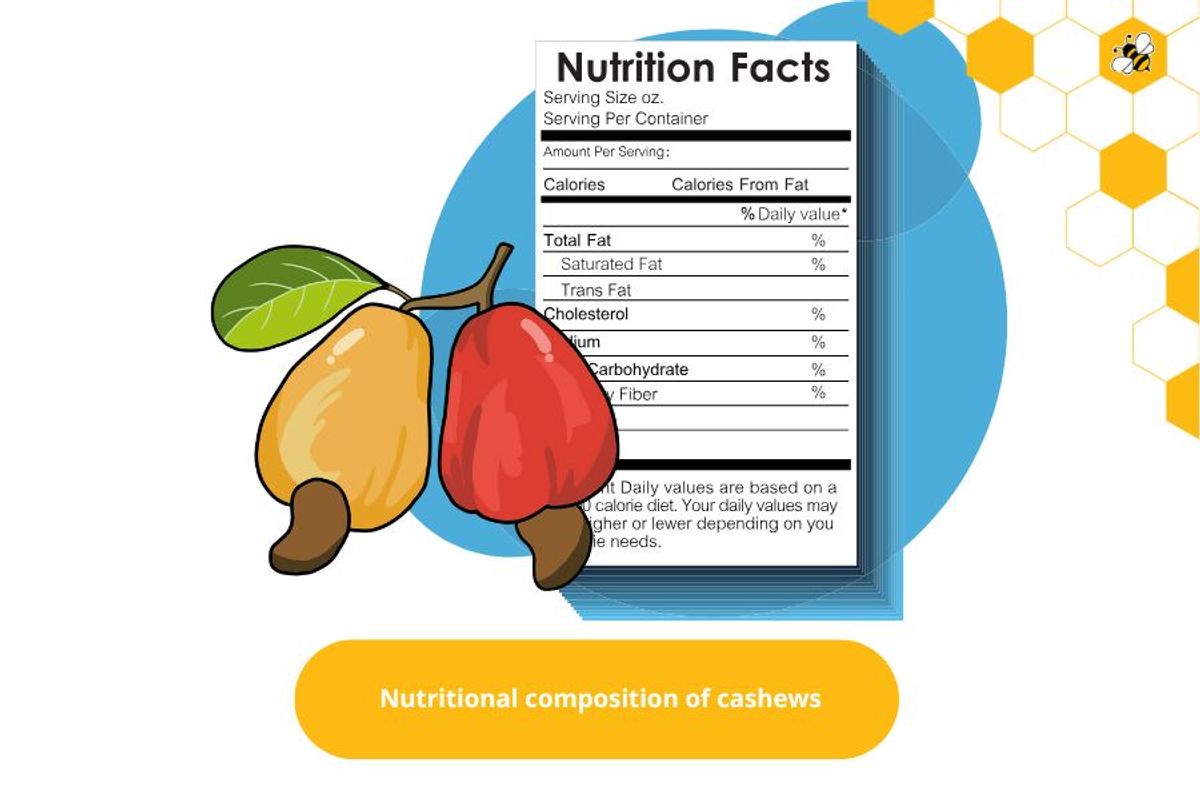
Benefits of cashews
Cashews are a fairly common nut in our country. They are used by many families. Cashews are delicious, rich, and very good for your health. Here are some of the benefits of cashews:
Good for the cardiovascular system: Cashews contain many types of unsaturated fatty acids such as oleic acid, which do not contain cholesterol. In addition, the magnesium content in cashews helps reduce blood pressure and prevent heart attacks. Thereby, it helps protect the coronary arteries and regulate heart activity, making the heart healthier.
Good for the cardiovascular system: Cashews contain many types of unsaturated fatty acids such as oleic acid, which do not contain cholesterol. In addition, the magnesium content in cashews helps reduce blood pressure and prevent heart attacks. Thereby, it helps protect the coronary arteries and regulate heart activity, making the heart healthier.

Brain boost: Omega 3, omega 6 fatty acids and magnesium in cashews help increase oxygen to the brain. Therefore, cashews are not only good for the brains of children but also adults. Cashews help boost memory and brain development, making the brain smarter.

Good for your bones and teeth: Cashews are rich in magnesium and calcium, two important substances in creating bone structure and helping to strengthen teeth. Regular use of cashews helps your bones and joints become more flexible and healthy.

Good for eye health: Cashews contain high levels of lutein and zeaxanthin, similar to carrots. These substances help protect the eyes from the effects of sunlight and help maintain the health of your eyes.

Other benefits: Cashews also help prevent cancer, strengthen the body's immune system, help keep skin and hair healthy, effectively lose weight, prevent gallstones, and support pregnant women.
In addition, cashews can also be squeezed to make a refreshing drink that is very good for the hot season with cooling properties or fermented into a light, delicious wine with a strawberry scent, sweet, slightly sour, and astringent taste. So enjoy cashews regularly to enjoy the wonderful benefits it brings!
Products made from cashews
Cashews are not only a useful nut but cashew leaves can also be used as food and medicine. Here are some ways to process and use cashews:
Eat fresh: Cashews can be eaten without any processing. When eating cashews, you should choose fruits with yellow, orange, or red outer skin. These are ripe cashews and just need to be washed, then thinly sliced, and dipped in soup to eat with.
Cashew wine: From cashews, you can squeeze the juice and ferment it into a light, delicious wine with a strawberry flavor, sweet, slightly sour, and astringent taste. This wine has the effect of nourishing, and improving appetite and diuretics.
Eat fresh: Cashews can be eaten without any processing. When eating cashews, you should choose fruits with yellow, orange, or red outer skin. These are ripe cashews and just need to be washed, then thinly sliced, and dipped in soup to eat with.
Cashew wine: From cashews, you can squeeze the juice and ferment it into a light, delicious wine with a strawberry flavor, sweet, slightly sour, and astringent taste. This wine has the effect of nourishing, and improving appetite and diuretics.
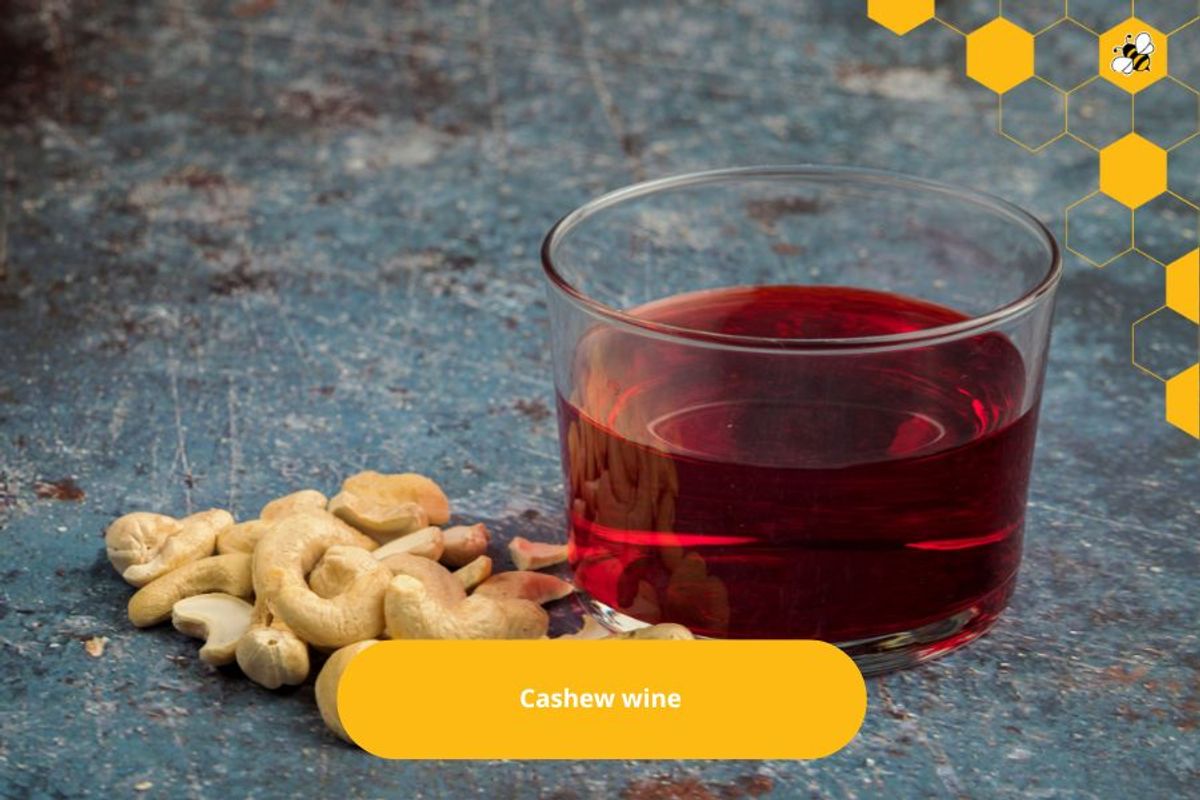
Cashew jam: is a delicious and popular dish made from cashews. Depending on how it is prepared, cashew jam can taste sweet, sour, or slightly astringent. You can buy cashew jam or make it at home by boiling cashews with sugar and water until the mixture thickens.
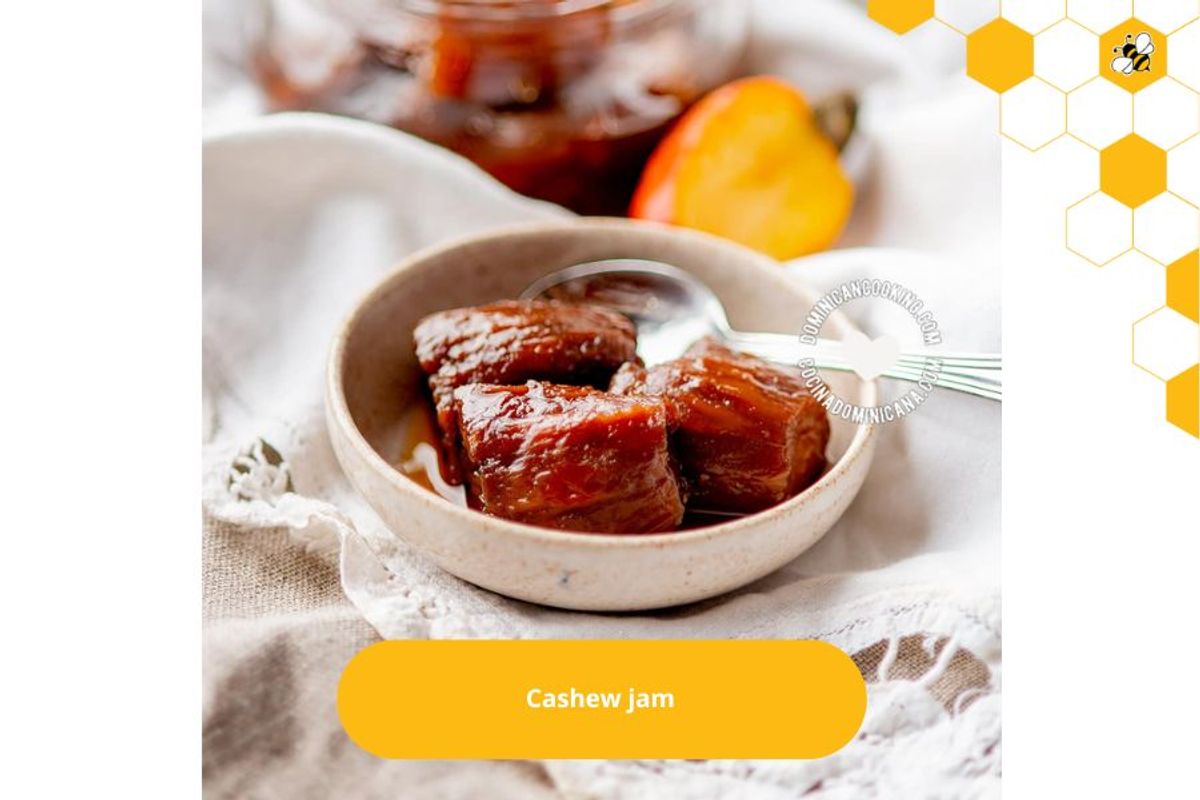
Fresh cashew smoothie: this is a delicious and nutritious drink. Cashews have a sour, slightly astringent taste when ripe, and cashew juice brings a delicious, unique flavor. To make cashew juice, you can combine cashews with other fruits such as apples, oranges, kiwis, or pineapples to increase nutritional value and flavor.
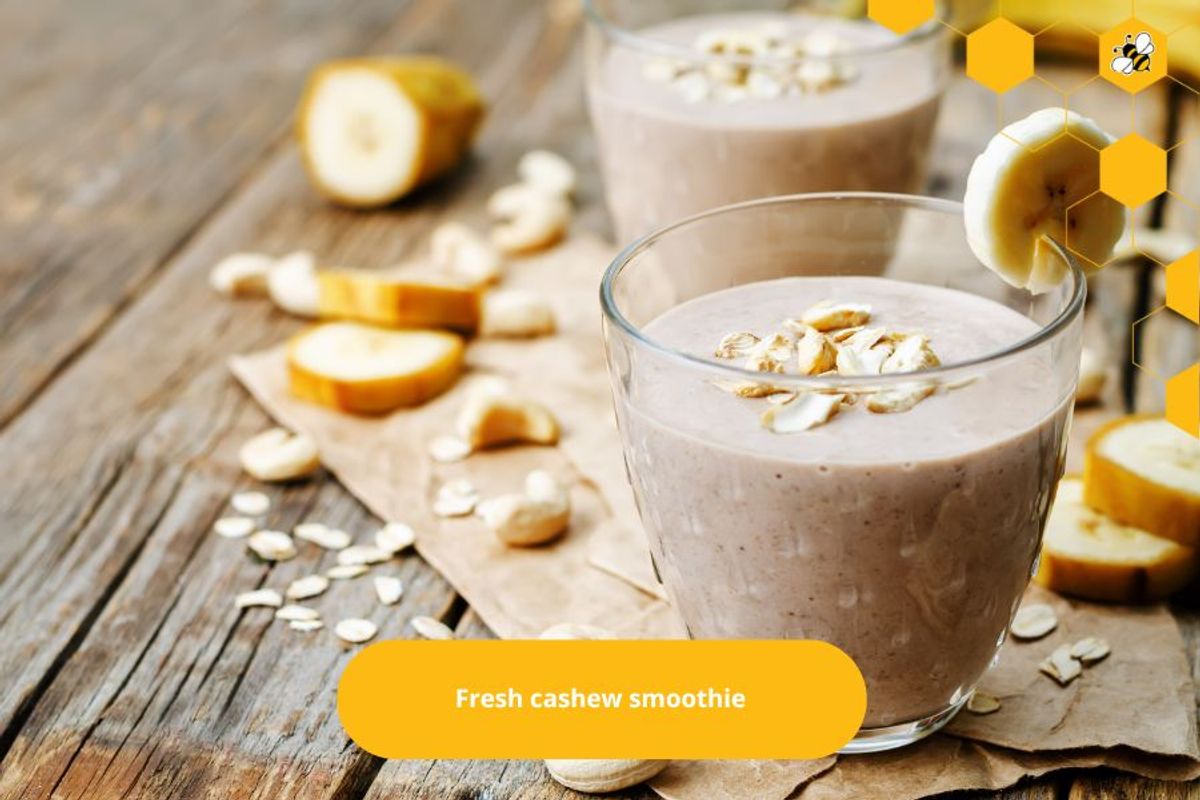
Spices: Cashews can also be used fresh in thin slices, with salt and chili added as a spice in meals or as a dessert. Combined with some other fruits, this soft flesh is also often used to make popular smoothies in the southern provinces, giving people a delicious, unique flavor.
Treatment: Cashew juice can also be used to massage to treat aches and pains, gargle to treat sore throats, and sip to prevent vomiting.
Some things to note when using fresh cashews:
After 24 hours, cashews will ferment and no longer taste good, so it is difficult to preserve.
When washing cashews, you need to be very gentle to avoid damaging the fragile outer shell.
Once the shell of the cashew is scratched, the taste of the cashew will no longer be fresh and delicious. Therefore, we should process the cashews as soon as they are fresh. This not only helps ensure freshness but also preserves the nutritional value of cashews. Cashews also can kill Anopheles mosquitoes. According to foreign documents, for a long time, African people have used a primitive method to kill Anopheles mosquitoes that cause malaria by spreading a large amount of juicy soft parts of ripe cashews around water reservoirs where these mosquitoes thrive. Many studies have shown that the acid in the fruit inhibits the physiological process of mosquito larvae, killing them, but does not cause harm to human health or the surrounding environment.
Treatment: Cashew juice can also be used to massage to treat aches and pains, gargle to treat sore throats, and sip to prevent vomiting.
Some things to note when using fresh cashews:
After 24 hours, cashews will ferment and no longer taste good, so it is difficult to preserve.
When washing cashews, you need to be very gentle to avoid damaging the fragile outer shell.
Once the shell of the cashew is scratched, the taste of the cashew will no longer be fresh and delicious. Therefore, we should process the cashews as soon as they are fresh. This not only helps ensure freshness but also preserves the nutritional value of cashews. Cashews also can kill Anopheles mosquitoes. According to foreign documents, for a long time, African people have used a primitive method to kill Anopheles mosquitoes that cause malaria by spreading a large amount of juicy soft parts of ripe cashews around water reservoirs where these mosquitoes thrive. Many studies have shown that the acid in the fruit inhibits the physiological process of mosquito larvae, killing them, but does not cause harm to human health or the surrounding environment.
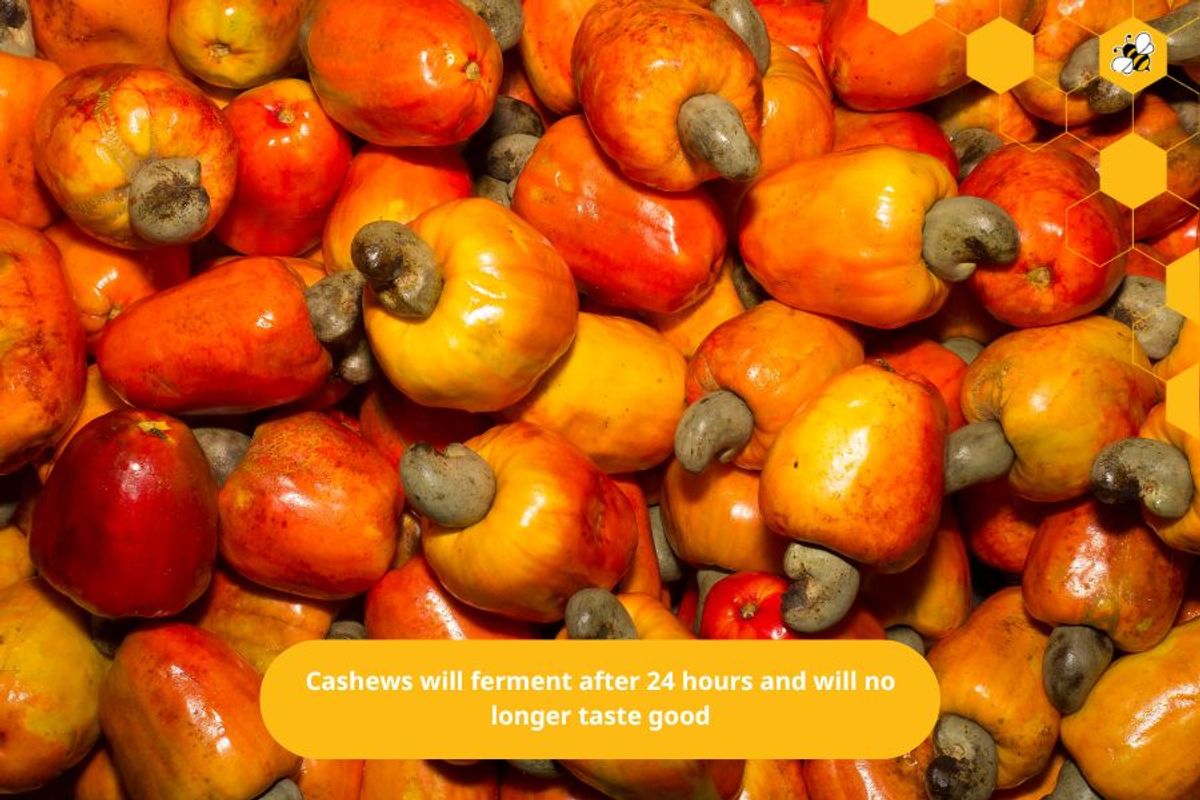
Commercial value of cashew nuts
Cashew nuts have high commercial value and are widely used in many fields. Here is some information about the commercial value of cashew nuts:
Food: Cashew nuts are often consumed directly as a snack. They have a sweet, fatty and crunchy taste, which is a favorite dish of many people. Cashew nuts are also used to make confectionery, cashew milk, and other foods.
Cashew nut oil: Cashew nuts contain oil with high commercial value. Cashew nut oil is used in cooking, baking, and food production. It is also used in the cosmetics and skincare industry.
Industry: Cashew nuts are used to produce glue, paint, and other products. Cashew shells are also used to produce plywood and construction materials.
Export market: Vietnam is one of the major countries producing and exporting cashew nuts. Vietnamese cashew nuts are exported to many countries around the world.
Food: Cashew nuts are often consumed directly as a snack. They have a sweet, fatty and crunchy taste, which is a favorite dish of many people. Cashew nuts are also used to make confectionery, cashew milk, and other foods.
Cashew nut oil: Cashew nuts contain oil with high commercial value. Cashew nut oil is used in cooking, baking, and food production. It is also used in the cosmetics and skincare industry.
Industry: Cashew nuts are used to produce glue, paint, and other products. Cashew shells are also used to produce plywood and construction materials.
Export market: Vietnam is one of the major countries producing and exporting cashew nuts. Vietnamese cashew nuts are exported to many countries around the world.
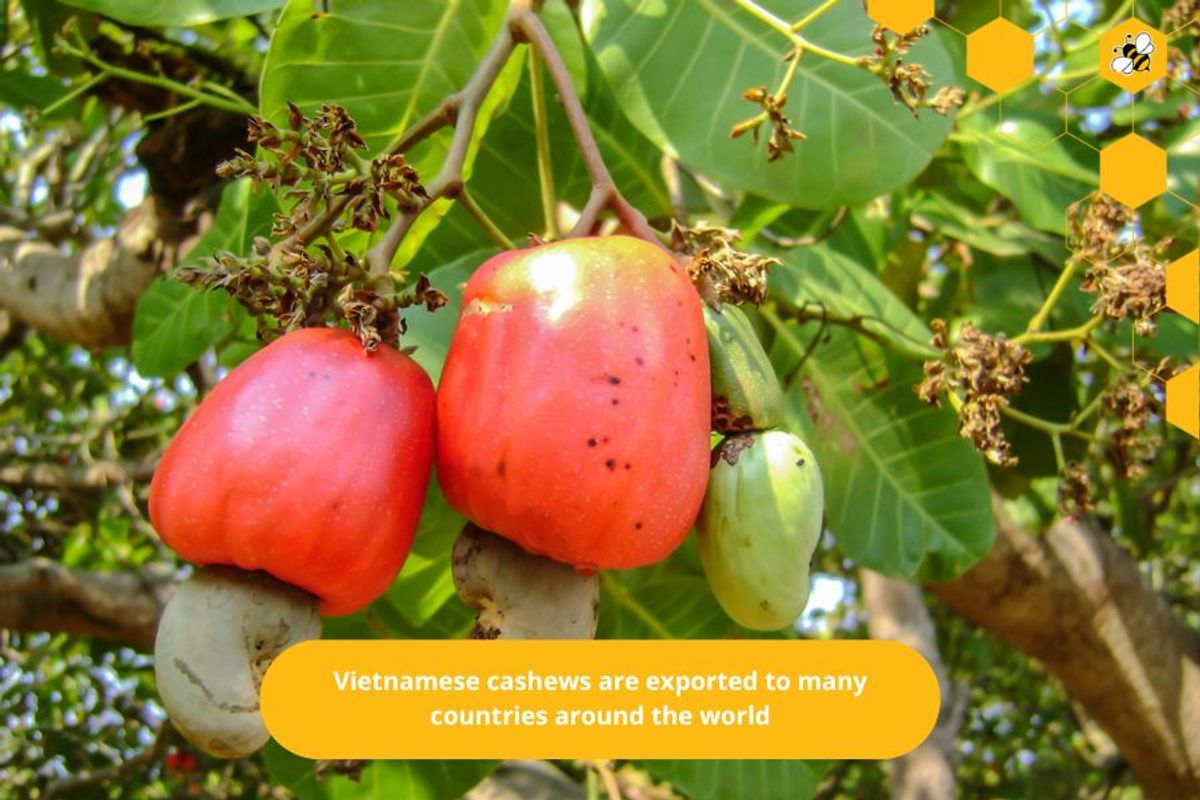
Conclusion
In conclusion, cashew nuts are not only a delicious food but also have diverse and important commercial value in many different industries. If you want to know more about cashew nuts or have any other questions, please continue to ask me!